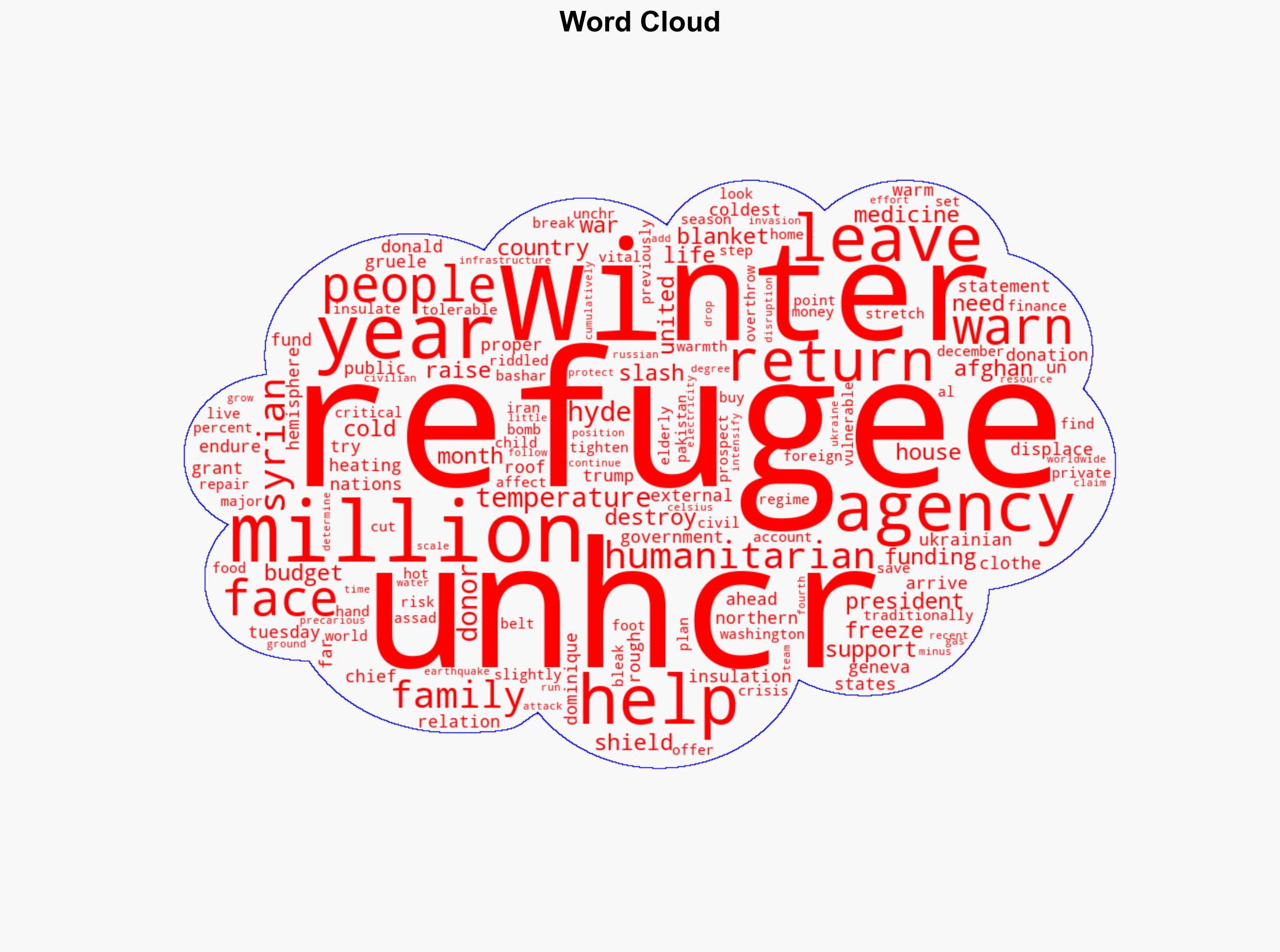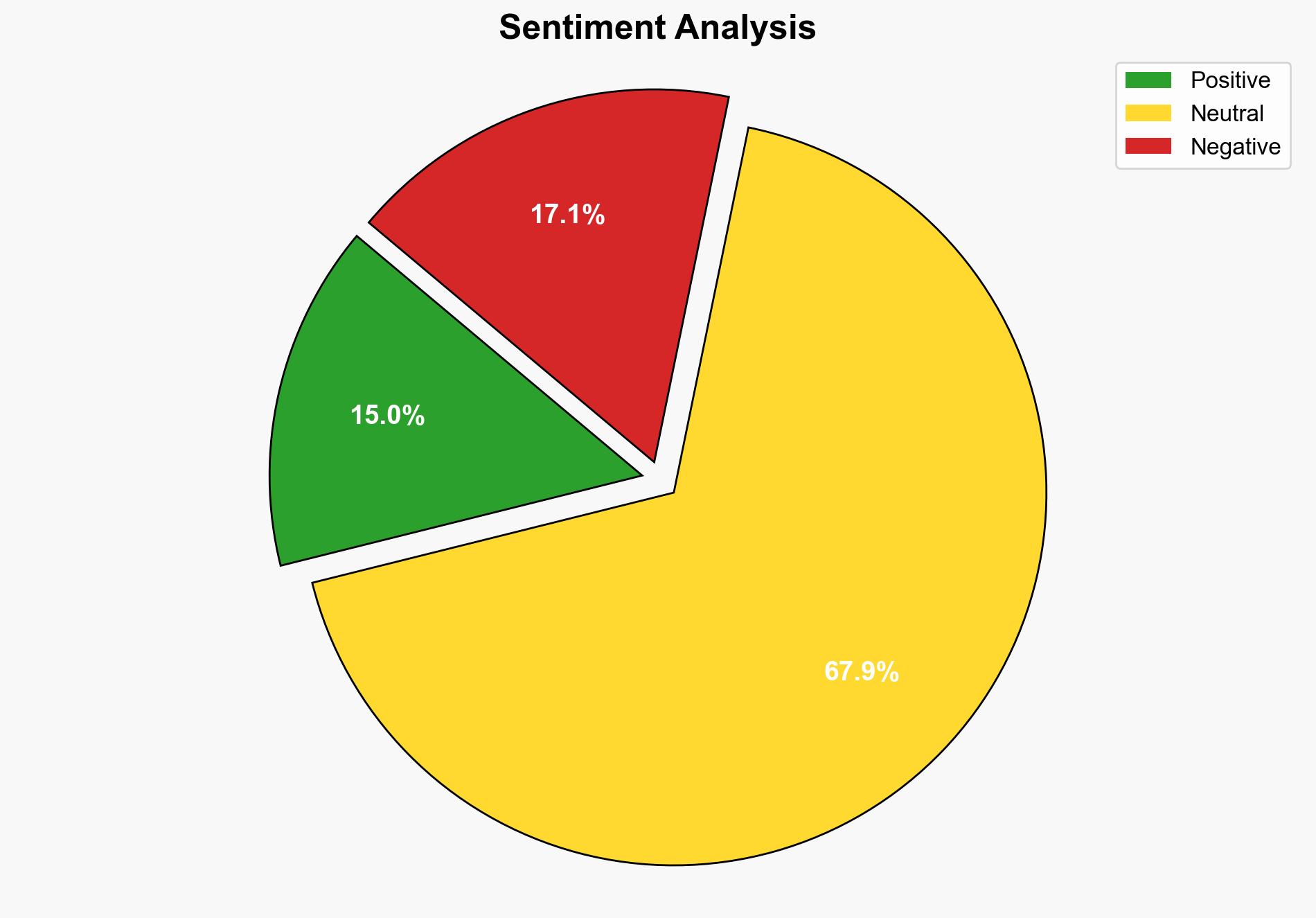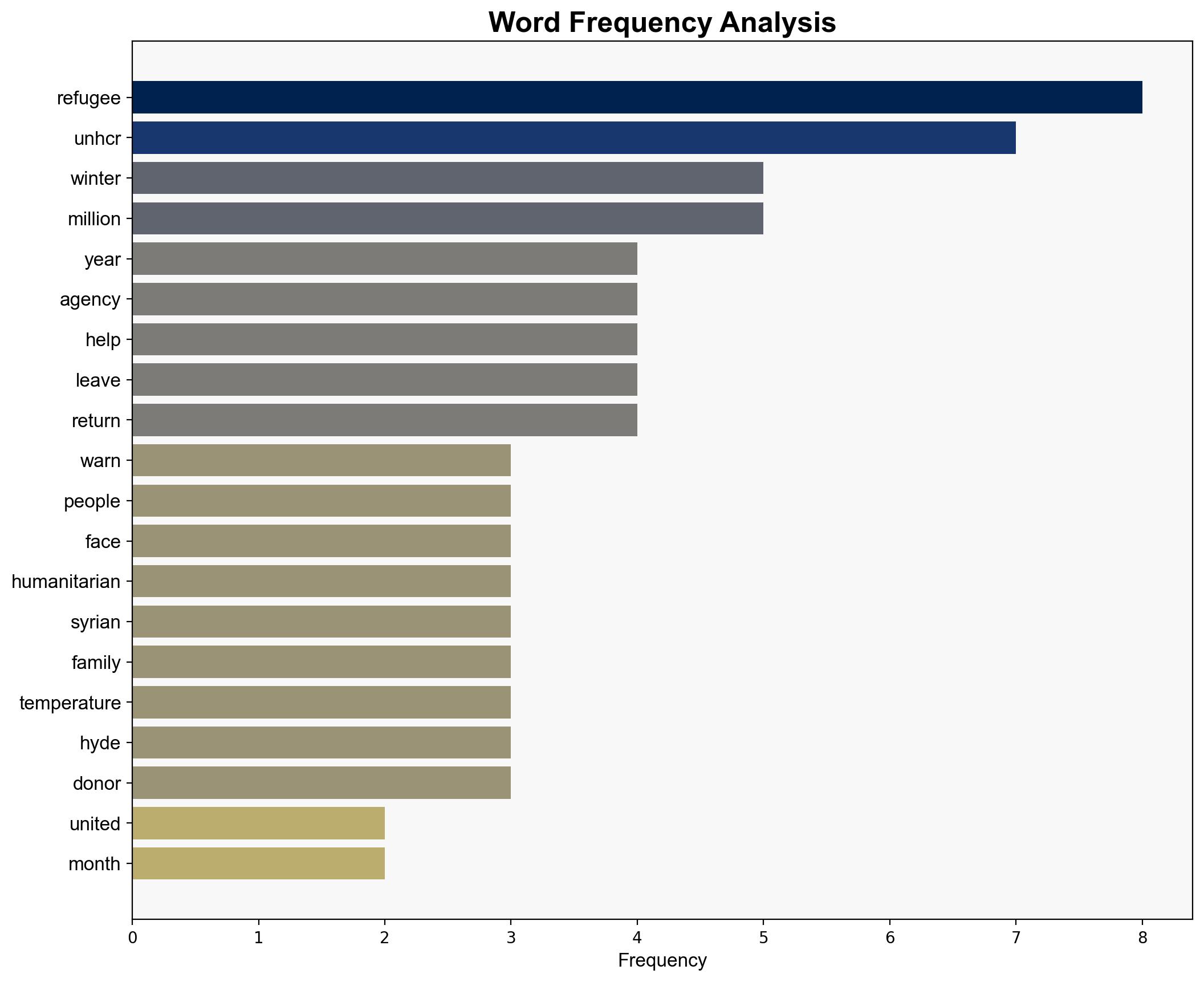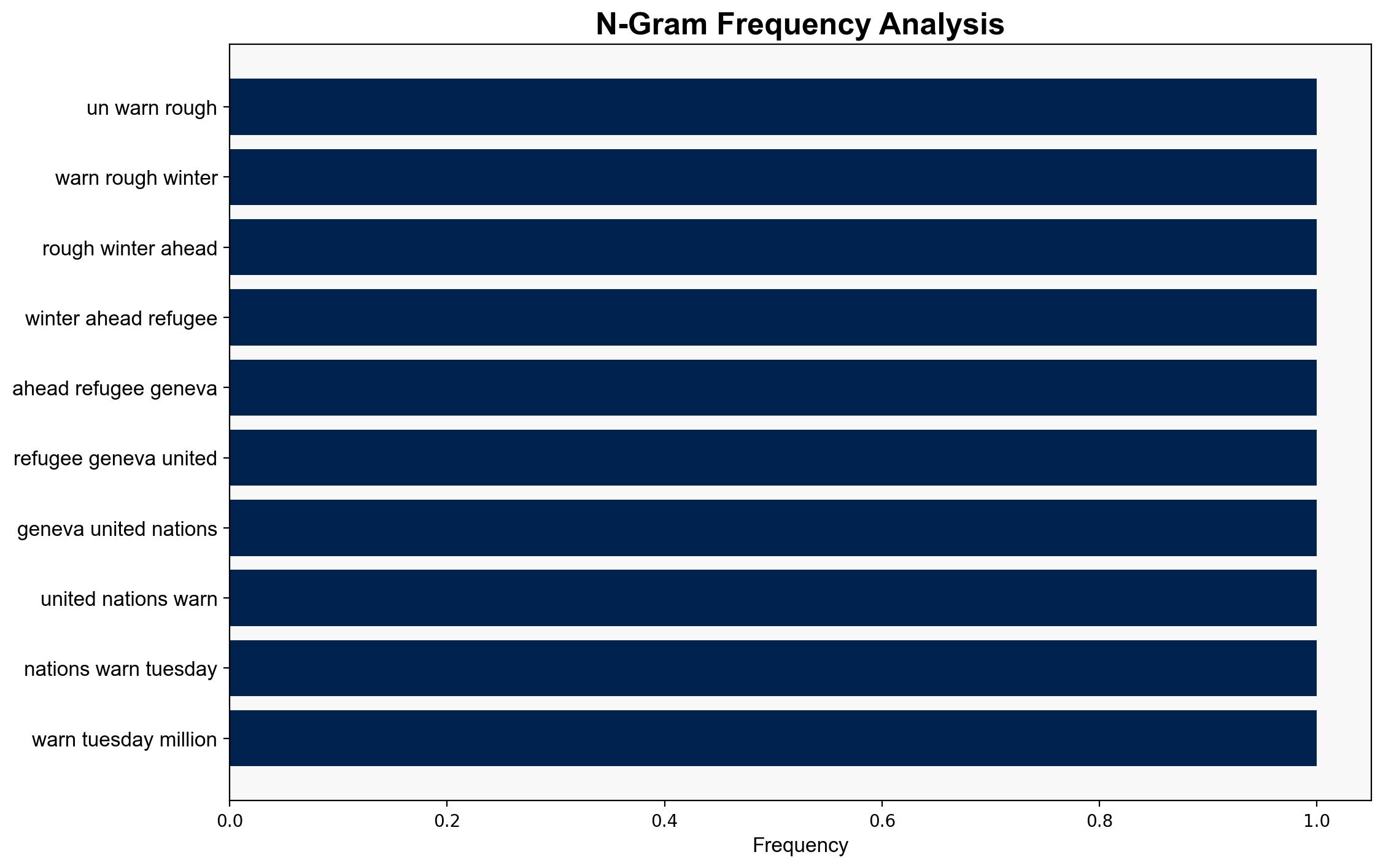UN warns of rough winter ahead for refugees – Hurriyet Daily News
Published on: 2025-11-11
AI-powered OSINT brief from verified open sources. Automated NLP signal extraction with human verification. See our Methodology and Why WorldWideWatchers.
Intelligence Report: UN warns of rough winter ahead for refugees – Hurriyet Daily News
1. BLUF (Bottom Line Up Front)
There is a high likelihood that the UNHCR will face significant challenges in providing adequate winter support to refugees due to funding shortfalls and geopolitical shifts. The most supported hypothesis is that without increased funding and international cooperation, refugee populations will experience severe hardships, potentially leading to increased mortality rates and regional instability. Recommended actions include diplomatic engagement to secure additional funding and leveraging private sector partnerships.
2. Competing Hypotheses
Hypothesis 1: The UNHCR will successfully secure additional funding from private donors and non-traditional sources, mitigating the impact of government funding cuts.
Hypothesis 2: The UNHCR will be unable to compensate for the funding shortfall, resulting in inadequate support for refugees during the winter, leading to increased suffering and potential mortality.
Hypothesis 2 is more likely due to the current geopolitical climate and economic constraints faced by traditional donor countries. The reduction in U.S. contributions and similar trends in other major donor countries suggest a challenging environment for securing necessary funds.
3. Key Assumptions and Red Flags
Assumptions: The analysis assumes that current funding trends will continue and that geopolitical tensions will not ease in the short term. It also assumes that private sector contributions will not fully offset government funding cuts.
Red Flags: Potential deception indicators include over-optimistic public statements by the UNHCR regarding funding prospects and underreporting of refugee hardships to avoid donor fatigue.
4. Implications and Strategic Risks
The primary risk is a humanitarian crisis exacerbating regional instability, particularly in areas like Syria, Afghanistan, and Ukraine. This could lead to increased migration pressures on neighboring countries, potential radicalization, and exploitation by hostile actors. Economically, strained resources could lead to increased competition and conflict over aid distribution.
5. Recommendations and Outlook
- Engage in diplomatic efforts to encourage traditional donor countries to reconsider funding cuts.
- Develop partnerships with private sector entities and NGOs to bridge funding gaps.
- Implement a targeted communication strategy to raise awareness and attract private donations.
- Best-case scenario: Successful funding acquisition leads to adequate winter support, minimizing refugee suffering.
- Worst-case scenario: Severe funding shortfalls result in high mortality rates and regional destabilization.
- Most-likely scenario: Partial funding recovery mitigates some impacts, but significant challenges remain, leading to increased hardships for refugees.
6. Key Individuals and Entities
Dominique Hyde (UNHCR External Relations Chief), President Donald Trump (referenced for historical context on U.S. funding trends).
7. Thematic Tags
National Security Threats, Humanitarian Crisis, Geopolitical Instability, Refugee Support
Structured Analytic Techniques Applied
- Cognitive Bias Stress Test: Expose and correct potential biases in assessments through red-teaming and structured challenge.
- Bayesian Scenario Modeling: Use probabilistic forecasting for conflict trajectories or escalation likelihood.
- Network Influence Mapping: Map relationships between state and non-state actors for impact estimation.
Explore more:
National Security Threats Briefs ·
Daily Summary ·
Methodology





